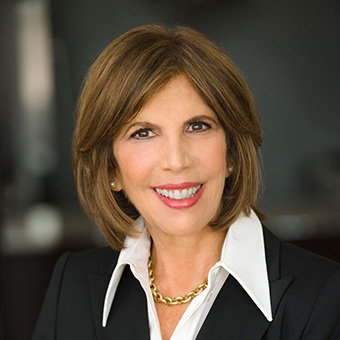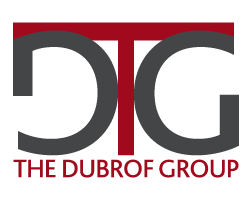Lesley Herrmann
Making History on Broadway
 Once upon a time Lesley Herrmann attended a musical at the Public Theatre in NYC. The author of the book that led to the musical was in the audience and asked Lesley what she thought of the play. She told him, “I think it’s the greatest opportunity to teach American history in our lifetime, but there are no students in the audience. What can we do about this?”
Once upon a time Lesley Herrmann attended a musical at the Public Theatre in NYC. The author of the book that led to the musical was in the audience and asked Lesley what she thought of the play. She told him, “I think it’s the greatest opportunity to teach American history in our lifetime, but there are no students in the audience. What can we do about this?”
The author, Ron Chernow, introduced Lesley to the show’s producer, Jeffrey Seller with whom she and her colleagues later had a brainstorming session. Three months later they submitted a proposal to the Rockefeller Foundation to fund an education program for 20,000 New York City school children to attend the show. Thanks to Lesley and her team’s creativity and the Foundation’s generosity, thousands of high school students have been able to attend a not-so-little show called Hamilton.
Lesley’s creativity and passion for bringing history to life have served her well as the founding executive director for the Gilder Lehrman Institute for American History. She has spearheaded the Institute’s efforts to promote American history and improve the quality of history education for elementary, middle and high school students. In fact, the Institute’s talented team of educators created a Hamilton website and performance guide for students to enrich the educational opportunity.
Ironically, Lesley had been a student of Russia and Russian literature. She spent the summer before college reading English translations of Russian novels but yearned to read the books in their original language. She subsequently earned an undergraduate degree in Russian at the University of Michigan and toured the Soviet Union on a fellowship in 1967 where she hung out all night in the parks translating Beatles lyrics for Russian college students. She came home with an empty suitcase due to giving all of her clothes away but with a balalaika and continued interest in all things Russian.
She deepened her knowledge of Russia by earning a Master of Russian Area Studies from Harvard University and later a Ph.D. in Slavic Languages and Literature from Columbia University. Faced with a dearth of Russian academic jobs in New York, Lesley started working in the nonprofit sector. From the 1970s through the early 1990s, Lesley worked for a variety of organizations including the Municipal Art Society, Asphalt Green, The New School for Social Research and Pace University.
In 1994, Richard Gilder, a well-known New York City philanthropist, asked Lesley to help him and Lewis Lehrman launch the Gilder Lehrman Institute of American History. At the time Lesley did not know much American history and actually thought it was rather boring. Gilder staunchly disagreed and insisted that American history is the best story in the world. Lesley marched herself down to Columbia and audited American history classes taught by renown professors Eric Foner, Ken Jackson and others. She soon concluded that Gilder was 100% right.
Over the past 20+ years, Lesley and her team at the Institute have developed numerous educational initiatives nationwide such as teacher seminars, traveling exhibitions, publication series, scholarly fellowships, research centers, book awards and the prize for the National History Teacher of the Year. The Institute has even launched multiple high schools focused on American history, including the High School of American Studies at Lehman College, currently the top ranked high school in the Empire State.
Lesley is retiring this year after 22 years of service to the Gilder Lehrman Institute but will continue to serve on the President’s Council of the Institute as well as maintain her emerita status on the board of the National Museum of American History. She plans on returning to her first love of teaching Russian novels, having made her mark in history by being a part of the team that helped bring history to life for hundreds of thousands of students.
Q&A
- How did you get your name?
My father was a navigator in the Air Force in World War II. I’m named after his pilot. - What did you want to be when you grew up?
I wanted to be an astronomer because my father taught us all the constellations; he had a telescope, and we saw the moons of Jupiter and the rings of Saturn. But I wasn’t good in math, alas. - What do you want to be now?
A teacher. - If you could have a mulligan, what would you redo?
Be more understanding with friends, family and colleagues. - What are you reading currently? Book or Electronic App?
Anna Karenina. iPad. - If you couldn’t live in America, where would you go?
Italy. - What is the biggest challenge ahead of you?
Deciding among several choices on how best to give back. - Which living person do you most admire?
Bryan Doerries who started a foundation that sponsors readings of the Greek classics to groups of veterans suffering from PTSD. - What is your greatest extravagance?
Travel. - Which superpower would you most like to have?
Time travel–I have a few things I’d like to mull over with the Founding Fathers. - You’re invited to a state dinner at the White House and cannot take your spouse/significant other? Who is your date?
My daughter or my sister, both great conversationalists. - Assuming you had the talent, with what musical group/artist living or dead would you most like to perform?
Dolly Parton or the New York Philharmonic, depending upon which imaginary talent I’m given.
